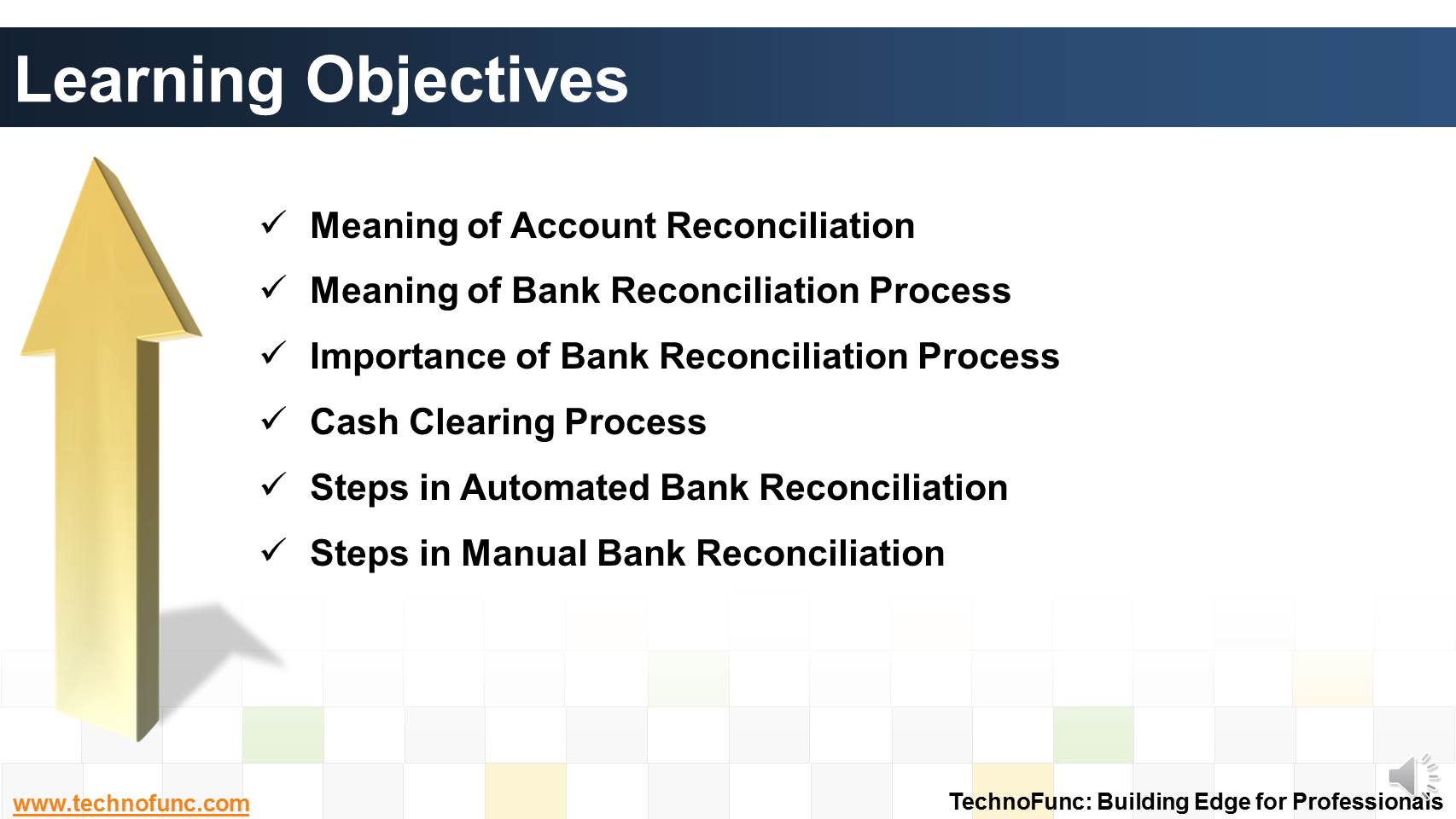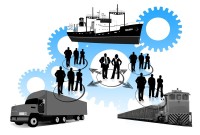- Home
- Business Processes
- Industry Knowledge
- Aerospace Industry
- Automotive Industry
- Banking Domain
- BFSI Industry
- Consumer/ FMCG Industry
- Chemicals Industry
- Engineering & Construction
- Energy Industry
- Education Domain
- Finance Domain
- Hospitality Domain
- Healthcare Industry
- Insurance Domain
- Retail Industry
- Travel and Tourism Domain
- Telecom Industry
- Leadership Skills
- eLearning
- Home
- Functional
- Treasury Management
- Introduction to Bank Reconciliation Process
Introduction to Bank Reconciliation Process
These set of articles provide a brief introduction to Bank Reconciliation Process. This topic not only discusses the meaning of bank reconciliation process but also discusses how this process in handled in new age ERPs and Automated Reconciliation Systems.
Bank reconciliation process is targeted to validate the bank balance in the general ledger and one of the most critical controllership processes. Learn the what, why and how of bank reconciliation process. Also get insights into how this is managed in modern ERPs and automated reconciliation systems. Proper completion of the Account Reconciliation Process is fundamental to ensuring the balance sheet is properly stated. Personnel with responsibility for Account Reconciliations hold key Controllership responsibilities.
A quick introduction to Bank Reconciliation Process. A must for folks working on General Ledger, Cash Management, Treasury and other functions involving bank reconciliation. Very good learning tool for IT professionals working on ERPs or automated recon systems to gain functional expertise on bank reconciliation process.
The learning objectives of this capsule are:
Learn the meaning of Account Reconciliation and its importance in controllership process
Meaning of Bank Reconciliation Process and its Importance
Understand the Cash Clearing Concepts and complete Process
Learn the steps in Automated Bank Reconciliation along with steps in Manual Bank Reconciliation

Related Links
You May Also Like
-
Why enterprises need cash management. What is the purpose of having a well defined cash management process?
-
Before we dive into cash management, let us fist understand what we mean by cash and what constitutes cash in context of cash management process.
-
Disbursement Float is the time taken from payment creation to settlement. Collection float is the sum total of time taken by Payment Float; Mail Float; Processing Float and Availability Float. Learn more!
-
Unravel the mystery behind clearing. Why we use clearing accounts. Find the relevance of word "Clearing" in business context.
-
Learning objectives for this lesson are: Meaning of Order to Cash Process; Sub Processes under Order to Cash; Process Flow for Order to Cash; Key Roles & Transactions; Key Setups/Master Data Requirements.
-
Effectively using cash management with trade finance products brings tangible benefits to both corporates and financial institutions.Learn the various benefits of cash management process.
-
Treasury has increasingly become a strategic business partner across all areas of the business, adding value to the operating divisions of the company. Managing activities that were traditionally carried out within the general finance function. Learn about the drivers for this change.
-
Suspense and clearing accounts resemble each other in many respects but there exists important fundamental difference between the two. Read more to explore these differences.
-
Bank reconciliation process is targeted to validate the bank balance in the general ledger and explain the difference between the bank balance shown in an organization's bank statement. Learn the reasons for existence of differences between the two.
-
Many different accounts are used in finance. Understand the representation and nature of clearing account in context of accounting, finance and ERP Systems.
Explore Our Free Training Articles or
Sign Up to Start With Our eLearning Courses

About Us
Learning
© 2023 TechnoFunc, All Rights Reserved











